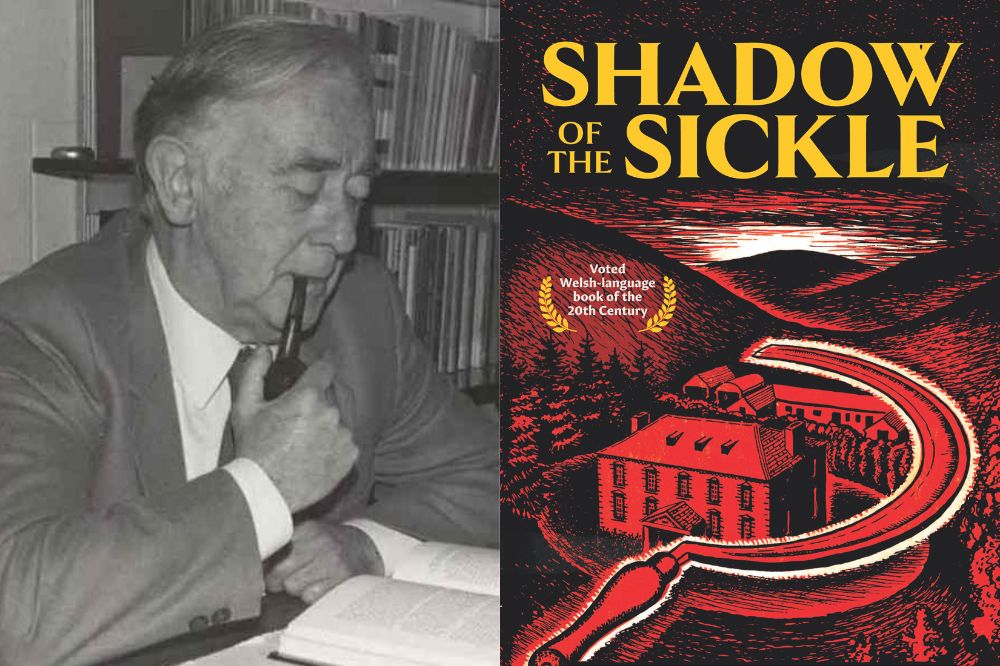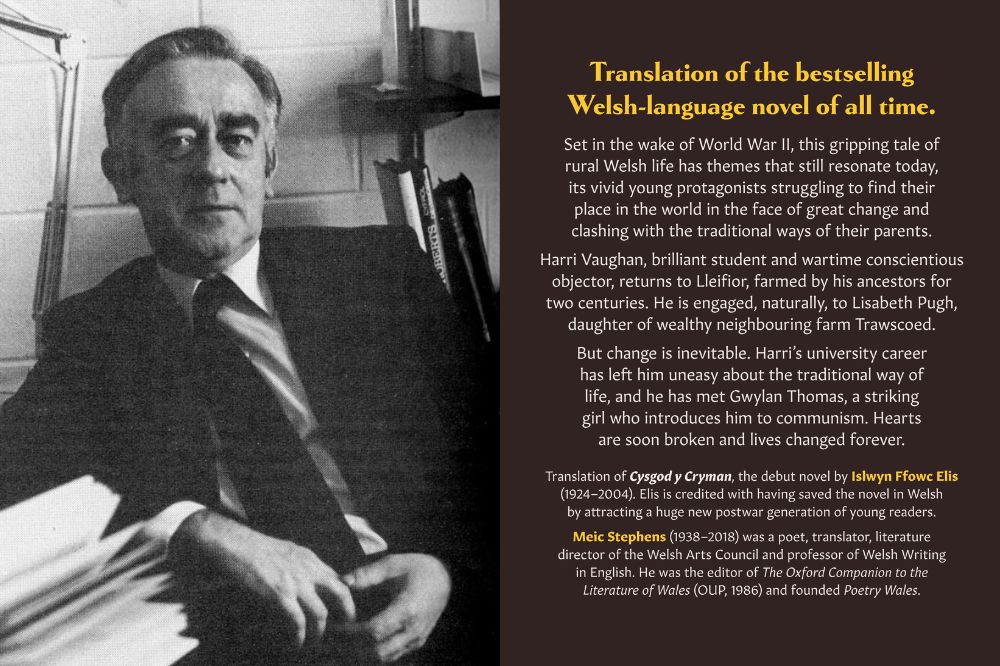Centenary of bestselling Welsh author’s birth marked by new book

An English translation of the best selling Welsh-language novel of all time is to be republished to commemorate the centenary of the groundbreaking original author’s birth.
Islwyn Ffowc Elis (1924–2004) was one of the most popular and important Welsh-language authors of the twentieth century. His first novel, Cysgod y Cryman, was originally published in 1953, at a time when Welsh-language literature was often stodgy and formal.
It is credited with having saved the novel in Welsh with its vivid portraits of exciting young characters, which attracted a huge new postwar generation of readers. Elis went on to become the bestselling Welsh novelist of the 1950s and 1960s.
Pivotal figure
Islwyn Ffowc Elis’ work has been lauded in the English-speaking world too. The Times’ obituary for the novelist praised him as “the father of the contemporary Welsh novel”, and historian Martin Johnes called Cysgod y Cryman “A great story … and an important depiction of the tensions within rural Wales just after the Second World War.”
The entry on Elis in the Oxford Dictionary of National Biography calls the book and its sequel, Yn ôl i Leifior, “a milestone in the history of the Welsh novel by virtue of their contemporaneity and inventiveness… classics of modern Welsh literature.”
To celebrate the centenary of Elis’ birth on 17 November 2024, Y Lolfa are republishing Shadow of the Sickle, the masterful English translation of Cysgod y Cryman by Meic Stephens (1938–2018), who was a poet, translator, literature director of the Welsh Arts Council and professor of Welsh Writing in English.
He was the editor of The Oxford Companion to the Literature of Wales (OUP, 1986) and founded Poetry Wales. His translation of Elis’ debut was first published by Gwasg Gomer in 1998, but has been out of print for many years.
Gripping tale
Set in the wake of World War II, the novel’s gripping tale of rural Welsh life has themes that still resonate today, its vivid young protagonists struggling to find their place in the world in the face of great change and clashing with the traditional ways of their parents.
Harri Vaughan, a brilliant student and wartime conscientious objector, returns to Lleifior, which has been farmed by his ancestors for two centuries.
He is engaged, naturally, to Lisabeth Pugh, daughter of the wealthy neighbouring farm. But the war has shaken everything up and change is inevitable.
Harri’s time at university has left him uneasy about the traditional rural way of life, and he has met Gwylan Thomas, a striking girl who introduces him to communism. Hearts are soon broken and lives altered forever.

Garmon Gruffudd of Y Lolfa said, “The fact that Cysgod y Cryman was a huge bestseller at the time isn’t the only testament to its importance.
“It has been a staple of the school Welsh literature syllabus for decades and has had a powerful influence on many Welsh-speakers and later Welsh-medium novelists. In 1999 it was voted the most popular Welsh-language novel of the whole of the twentieth century.
“As a publisher specialising in books from Wales, we feel strongly that we should mark the centenary of Elis’ birth by making Meic Stephens’ excellent translation available again, so that those who aren’t able to read this important novel in the original language are able to enjoy it.”
Praise
“Islwyn Ffowc Elis gave [the novel in Welsh] life as a popular form… his novels sold like no others in Welsh before, and in the vitality of his writing, in any event, he may be regarded as the father of the contemporary Welsh novel.”
– Islwyn Ffowc Elis obituary, The Times
“Cysgod y Cryman was in all kinds of ways a watershed in the landscape of Welsh writing…The fluid, natural style of this novel was a revelation… [it] dealt with characters who represented a modern sense of unease with established ways… [and gave] a new credibility to the novel that impelled other, younger writers to turn to it as a vehicle of expression.”
– R Gerallt Jones
“The Lleifior books [Cysgod y Cryman and Yn ôl i Leifior] were a milestone in the history of the Welsh novel by virtue of their contemporaneity and inventiveness, which, after decades of heavily didactic writing in stiff and often archaic language, delighted younger readers… They became classics of modern Welsh literature. There was no dissent when, in 1999, Cysgod y Cryman was chosen as ‘Welsh book of the century’.
– Oxford Dictionary of National Biography
“Elis’s work extended the range of his native tongue and Cysgod y Cryman, tackling the battle between capitalism and communism, attracted thousands of new readers. He returned to the unforgettable characters of Cysgod y Cryman in his third novel, Yn Ôl i Leifior (1956).”
– D Ben Rees, The Guardian (obituary of Islwyn Ffowc Elis)
“A great story … and an important depiction of the tensions within rural Wales just after the Second World War. The book was important in taking Welsh-language novels to a younger audience.”
– Prof. Martin Johnes
Shadow of the Sickle by Islwyn Ffowc Elis, translated by Meic Stephens (£11.99, Y Lolfa), is available on 15 November.
Find out more or buy here.
Support our Nation today
For the price of a cup of coffee a month you can help us create an independent, not-for-profit, national news service for the people of Wales, by the people of Wales.





